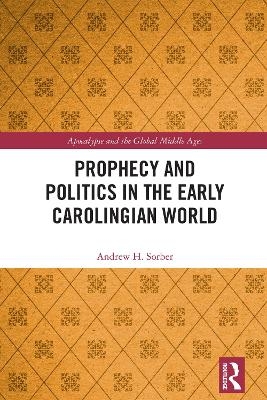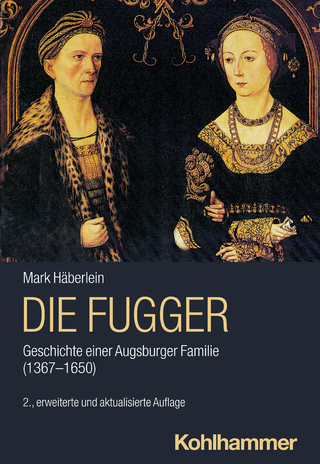
Prophecy and Politics in the Early Carolingian World
Routledge (Verlag)
978-1-032-42272-5 (ISBN)
Prophetic and apocalyptic rhetoric play critical roles in the development and articulation of political authority in the reigns of Charlemagne (d. 814) and Louis the Pious (d. 840). The rhetorical authority derived from claims of receiving revelation, interpreting divine communication, speaking for God, and foreseeing calamities became a competitive medium through which individuals legitimized political behaviour, debated their long- and short-term aspirations, and struggled for political supremacy. Ranging from claims of revelations, dreams, and visions, to the adoption of rhetorical voices based on biblical prophets, to the interpretation of signs and portents, prophetic rhetoric enjoyed extensive experimentation and varied application throughout early medieval political discourse.
Prophecy and Politics in the Early Carolingian World argues that claims of divine revelation, resistant to any attempts to monopolize them, provided a powerful means of speaking with authority for all participants in Frankish political discourse. This authority proved instrumental in the articulation and dismantling of effective Carolingian royal authority from 768 to 840. The volume introduces and reinterprets early Carolingian political discourse and intellectual activity, as well as the centrality of apocalypticism in the Carolingian period, by emphasizing prophecy, or revelation and authority, rather than prediction and calamity.
Early Carolingian political discourse was a dialogue that took place across royal proclamations, legal statements, historical texts, visions, scriptural commentaries, and manifestations of the natural world, and in this dialogue, the ability to interpret God’s will was as powerful as it was problematic.
Andrew Sorber is an assistant professor of Humanities and History at Southern Virginia University and the program coordinator for History. His research and teaching explore the religious, political, and intellectual history of the early medieval Mediterranean world, with topics including apocalypticism, polemics, interreligious understanding, debate, and conflict. His publications focus on issues of authority in Islamic al-Andalus and the Frankish kingdoms ruled by the Carolingians. He completed a bachelor’s degree in history at Brigham Young University, a master’s degree at Magdalene College, Cambridge, and a doctorate in medieval history at the University of Virginia.
Chapter 1 – Introduction: Prophetic Rhetoric and Apocalyptic Authority in the Carolingian World
Chapter 2 – Speaking for God in the Reigns of Charlemagne and Louis the Pious, 768–840
Chapter 3 – Reading and Reforming the World (c. 771–c. 789)
Chapter 4 – Confronting Crisis and Controlling Meaning (789–814)
Chapter 5 – Expanding Impact and Diminishing Control (814–829)
Chapter 6 – Pulling God Into Debate (829–840)
Chapter 7 – Epilogue: Prophetic Pasts and Apocalyptic Futures
| Erscheinungsdatum | 18.04.2024 |
|---|---|
| Reihe/Serie | Apocalypse and the Global Middle Ages |
| Verlagsort | London |
| Sprache | englisch |
| Maße | 156 x 234 mm |
| Gewicht | 690 g |
| Themenwelt | Geschichte ► Allgemeine Geschichte ► Mittelalter |
| Geschichte ► Teilgebiete der Geschichte ► Religionsgeschichte | |
| ISBN-10 | 1-032-42272-6 / 1032422726 |
| ISBN-13 | 978-1-032-42272-5 / 9781032422725 |
| Zustand | Neuware |
| Informationen gemäß Produktsicherheitsverordnung (GPSR) | |
| Haben Sie eine Frage zum Produkt? |
aus dem Bereich


